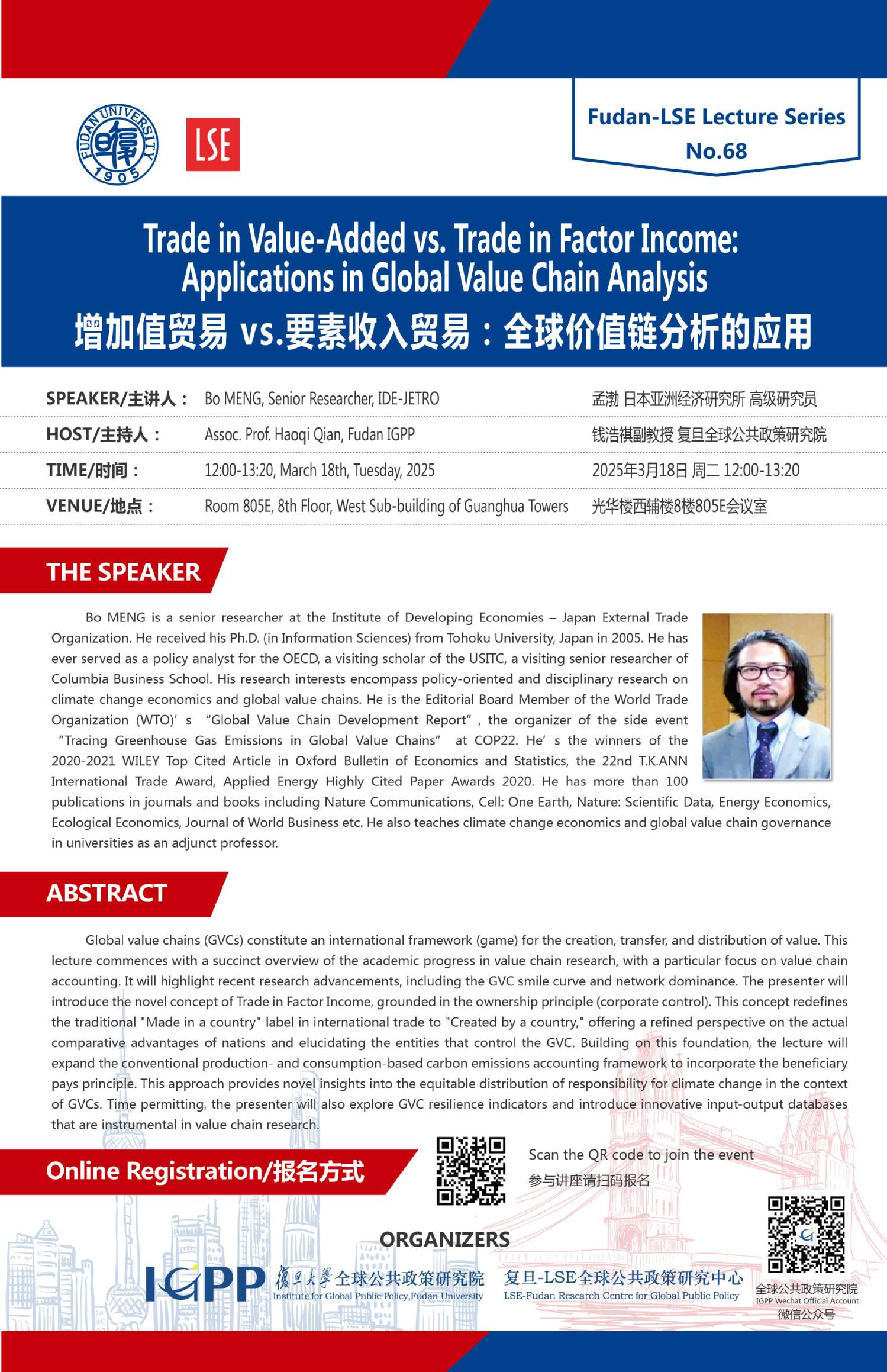
Fudan-LSE Lecture Series No.68
Title:
Trade in Value-Added vs. Trade in Factor Income: Applications in Global Value Chain Analysis
Speaker:
Bo MENG, Senior Researcher, IDE-JETRO
Host:
Assoc. Prof. Haoqi Qian, Fudan IGPP
Time:
12:00-13:20, March 18th, Tuesday, 2025
Venue:
Room 805E, 8th Floor, West Sub-building of Guanghua Towers
https://www.wjx.cn/vm/YEMb9KX.aspx#

The Speaker:

Bo MENG is a senior researcher at the Institute of Developing Economies – Japan External Trade Organization. He received his Ph.D. (in Information Sciences) from Tohoku University, Japan in 2005. He has ever served as a policy analyst for the OECD, a visiting scholar of the USITC, a visiting senior researcher of Columbia Business School. His research interests encompass policy-oriented and disciplinary research on climate change economics and global value chains. He is the Editorial Board Member of the World Trade Organization (WTO)’s “Global Value Chain Development Report”, the organizer of the side event “Tracing Greenhouse Gas Emissions in Global Value Chains” at COP22. He’s the winners of the 2020-2021 WILEY Top Cited Article in Oxford Bulletin of Economics and Statistics, the 22nd T.K.ANN International Trade Award, Applied Energy Highly Cited Paper Awards 2020. He has more than 100 publications in journals and books including Nature Communications, Cell: One Earth, Nature: Scientific Data, Energy Economics, Ecological Economics, Journal of World Business etc. He also teaches climate change economics and global value chain governance in universities as an adjunct professor.
Global value chains (GVCs) constitute an international framework (game) for the creation, transfer, and distribution of value. This lecture commences with a succinct overview of the academic progress in value chain research, with a particular focus on value chain accounting. It will highlight recent research advancements, including the GVC smile curve and network dominance. The presenter will introduce the novel concept of Trade in Factor Income, grounded in the ownership principle (corporate control). This concept redefines the traditional 'Made in a country' label in international trade to 'Created by a country,' offering a refined perspective on the actual comparative advantages of nations and elucidating the entities that control the GVC. Building on this foundation, the lecture will expand the conventional production- and consumption-based carbon emissions accounting framework to incorporate the beneficiary pays principle. This approach provides novel insights into the equitable distribution of responsibility for climate change in the context of GVCs. Time permitting, the presenter will also explore GVC resilience indicators and introduce innovative input-output databases that are instrumental in value chain research.





